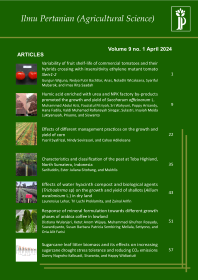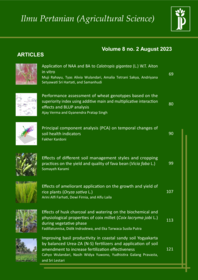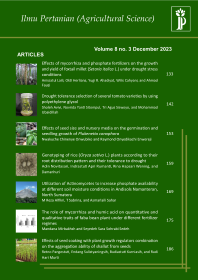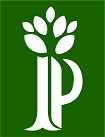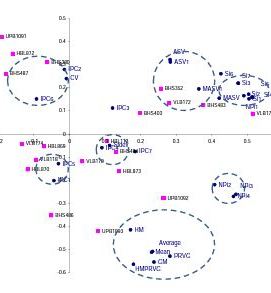
Performance assessment of wheat genotypes based on the superiority index using additive main and multiplicative interaction effects and BLUP analysis
Ajay Verma(1*), Gyanendra Pratap Singh(2)
(1) ICAR-IIWBR, Agrasain Marg Karnal 132001 Haryana
(2) ICAR-IIWBR, Agrasain Marg Karnal 132001 Haryana
(*) Corresponding Author
Abstract
The simultaneous use of additive main and multiplicative interaction effects (AMMI) and best linear unbiased predictors (BLUP) has been reflected in the multi-location evaluation of trials for number of crops. The additional advantages of both these approaches would be combined in superiority index (SI) to have an edge over the commonly used approaches. The promising wheat genotypes had been considered under multi location trails in Peninsular zone of India during the cropping seasons of 2018-2019 and 2019-2020. The highly significant environmental effects contributed 44.1% & 35.3% of total sum of squares in the AMMI analysis, 20.6% & 26.2% were augmented by G × E interaction, while 10.8% & 7.5% were contributed by the genotypes.Wheat genotypes of UAS3001, MACS6222, GW322, and DDW48 expressed their superiority in BLUP values. Superiority indexes and adaptability measures had identified WHD964 and DDW48 genotypes for the second year of study. More than 75% variations among the considered measures were due to the first two interaction principal components (IPCA’s) under Biplot analysis. Number of superiority index measures were clustered with adaptability measures in the same quadrant. Superiority index, the weighted measure of yield and consistent performance of genotypes would be more appropriate for stability and adaptabilities studies.
Keywords
Full Text:
PDFReferences
Agahi, K., Ahmadi J., Oghan, H. A., Fotokian, M. H., Orang, S.F. (2020). Analysis of genotype × environment interaction for seed yield in spring oilseed rape using the AMMI model. Crop Breeding and Applied Biotechnology, 20(1), e26502012
Ajay, B. C., Aravind, J., Fiyaz, R. A., Kumar, N., Lal, C., Kona, P., Dagla, M. C., Bera, S. K. (2019). Rectification of modified AMMI stability value (MASV). Indian J Genet, 79(4), pp.726-731.
Ajay, B.C., Bera, S.K., Singh, A.L., Kumar, N., Gangadhar, K., Kona, P. (2020). Evaluation of Genotype × Environment Interaction and Yield Stability Analysis in Peanut Under Phosphorus Stress Condition Using Stability Parameters of AMMI Model. Agric Res, 9, pp. 477–486.
Ashwini, K.V.R., Ramesh, S., Sunitha, N.C. (2021). Comparative BLUP, YREM-based performance and AMMI model-based stability of horse gram [Macrotyloma uniflorum (Lam.) Verdc.] genotypes differing in growth habit. Genet Resour Crop Evol https://doi.org/10.1007/s10722-020-01089-x
Bocianowski, J., Niemann, J., Nowosad, K. (2019). Genotype-by environment interaction for seed quality traits in interspecific cross-derived Brassica lines using additive main effects and multiplicative interaction model. Euphytica, 215(7), pp.1–13.
Mohammadi, M., Sharifi, P., Karimizadeh, R., Jafarby J.A., Khanzadeh, H., Hosseinpour, T., Poursiabidi, M.M., Roustaii, M., Hassanpour, H.M., Mohammadi, P. (2015). Stability of grain yield of durum wheat genotypes by AMMI model. Agric For, 61(3), pp. 181-193.
Olivoto, T., Lucio A.Dal’Col, Gonzalez, Silva, J.A. da, Marchioro, V.S .(2019). Mean performance and stability in multi-environment trials I: Combining features of AMMI and BLUP techniques. Agron J, 111, pp.1–12
Oyekunle, M., Menkir, A., Mani, H., Olaoye, G., Usman, I.S., Ado, S. (2017). Stability analysis of maize cultivars adapted to tropical environments using AMMI analysis. Cereal Res Commun, 45, pp.336–345.
Resende, M.D.V, Duarte, J.B. (2007). Precision and Quality Control in Variety Trials. PesquisaAgropecuaria Tropical, 37, pp. 182-194.
Tekdal, S., Kendal, E. (2018). AMMI Model to Assess Durum Wheat Genotypes in Multi-Environment Trials. J Agr Sci Tech, 20, pp. 153-166.
Zali, H., Farshadfa,r E., Sabaghpour, S.H., Karimizadeh, R .(2012). Evaluation of genotype × environment interaction in chickpea using measures of stability from AMMI model. Ann Biol Res, 3, pp.3126–3136.
Article Metrics
Refbacks
- There are currently no refbacks.
Ilmu Pertanian (Agricultural Science) ISSN 0126-4214 (print), ISSN 2527-7162 (online) is published by Faculty of Agriculture Universitas Gadjah Mada collaboration with Perhimpunan Sarjana Pertanian Indonesia (PISPI) and licensed under a Creative Commons Attribution-ShareAlike 4.0 International License.










